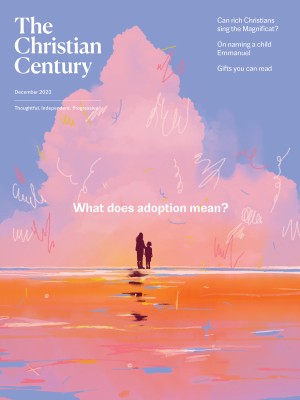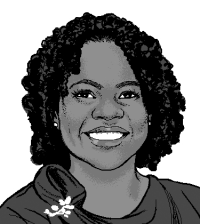Settling into the joy of vocation
My life must be lived as a response to something beyond myself and my material needs.

(Photo by ChiccoDodiFC / iStock / Getty)
I find comfort in the routines in life, especially when so much of life seems so uncertain and capricious. For almost a decade, I went running along the same route each day and encountered many of the same people. I always saw the university shuttle bus at almost the same location. The dog walkers were among the most faithful, along with the people who needed their morning caffeine fix at the coffee shops near campus. Like in Groundhog Day, my morning routine included an eerily identical scene and cast of characters each day.
Almost every morning I saw a nun. She was there to greet the children who attended the parochial school attached to our neighborhood Catholic church. I first noticed her because, unlike many contemporary women religious, she wore a habit. She always returned my friendly wave of greeting, and I enjoyed watching her usher the groups of tired, grumpy children in the door to the school. In and out of season, for years until I moved, I witnessed her faithfulness.
Read our latest issue or browse back issues.
I’ve thought about this scene recently while contemplating the old-fashioned notion of vocational calling. Both vocation and calling are words we easily use in faith contexts, but we rarely define them. A vocation is not a job, and a calling is not about employment. When I use the phrase “vocational calling” as a Christian, it is rooted in my belief that my life must be lived as a response to something beyond myself and my material needs. A sense of a vocational calling affirms that I am uniquely created by God to use my gifts, talents, strengths, and skills to love God, to love my neighbors, and to work toward the fullness of God’s kingdom for this present day and age.
My vocational calling is inextricably bound to my identity, whether I am in running shoes and yoga pants or in clerical garb in the pulpit. I am reminded that I have a calling and a purpose—that I have been set aside and marked by a religious vocation, just as the habit or hijab marks the wearer. Most importantly, I know that a vocational calling doesn’t mean a life of deprivation or without joy. A vocational calling can be as much about passion and joy as it is about obedience to God. “Don’t ask what the world needs,” writes Howard Thurman. “Ask what makes you come alive, and go do it. Because what the world needs is people who have come alive.” Thurman was the first theologian I read who affirmed that flourishing in my calling, feeling excitement and joy in my work, is also a gift from God.
I have not always embraced the idea of a vocational calling. As a child of poverty, the last thing I wanted was to be called to a vocation that required sacrifice or serving others. I hoped and prayed that whatever God wanted me to do with my life, making a lot of money would be a part of it! I wanted the financial security in my adulthood that I never experienced in my childhood. I didn’t want to follow in the footsteps of so many of my elders, who spent their lives in service to others and who seemingly had nothing at the end to show for their faithfulness. When I found myself called to do work in the academy and the church, I lamented that God didn’t call me to something more lucrative.
It is only in the fullness and maturity of time that I now understand that the peace of embracing your calling is a treasure beyond measure. No matter how much I have emulated Jonah and tried to run from this calling, God has lovingly called me back to myself. Nothing compares to the assurance I have that I am in the right place, at the right time, doing the will of the One who has called me.
Again, the work itself—the particular employment—is not the vocation. Love of God is the vocation. “Vocation does not come from a voice out there calling me to be something I am not,” says Thomas Merton. “It comes from a voice in here calling me to be the person I was born to be.”
Merton’s words remind me of the nun I saw on those daily runs. I don’t know what led her to a religious vocation or how she came to serve at this particular school. I only know that from a distance I witnessed her faithfulness to these children, through snow and rain and heat. On days I didn’t want to strap on my sneakers, I thought about her steadfastness and the gentle wave that routinely greeted me. By walking in her vocational calling, she encouraged others whom she didn’t even know.
I love this assurance from Paul: “There are varieties of gifts but the same Spirit, and there are varieties of services but the same Lord, and there are varieties of activities, but it is the same God who activates all of them in everyone. To each is given the manifestation of the Spirit for the common good” (1 Cor. 12:4–7). It is a precious thing to know that our individual vocational callings—even when we are working in isolation or we don’t think anyone is paying attention—can be used by God for the common good.




